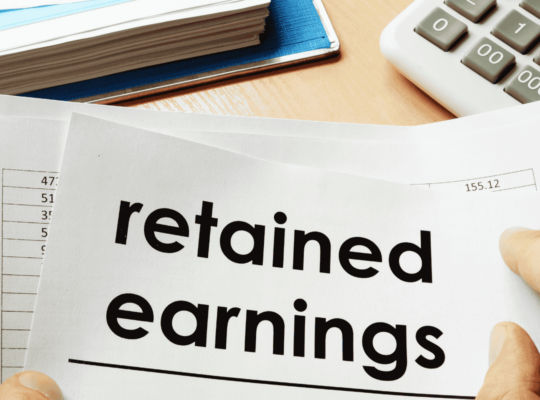
Investment is the process of setting aside money from your income to invest in an asset that will grow in value over time. On the other hand, investing in high-risk products with the expectation of quick profits leans more toward speculation. Speculation is like taking a risky swing at the final ball in a Twenty20 cricket match—if you mistime it, you’re likely to be caught. In contrast, investment involves a thoughtful approach, preparation, allocating an appropriate time horizon, and analyzing the fundamentals to ensure long-term growth.
High returns and fast profits from cryptocurrency, equities F&O, and equity trading advice may seem tempting. However, remember that the return of capital is far more important than the return on capital.
Equity Derivatives:
Speculators contribute liquidity to the stock market by taking positions in trades and risks. It is crucial to remember that professional traders, including broking firms, foreign institutional investors (FIIs), and foreign portfolio investors (FPIs), possess the knowledge, resources, and experience necessary to take positions in equities derivatives.
However, you wouldn’t have the same resources, knowledge, or capacity to trade derivatives as an individual investor. A professional broker-trader or financial institution cannot be compared to a common investor unless this individual investor is a full-time trader, having a sizable cash cushion, and have many years of expertise in trading derivatives.
Equity Trading:
You should invest in equities through mutual funds or directly in stocks if you have the time and knowledge to do so.
According to recent statistics released by the Securities and Exchange Board of India (SEBI), in 2023–2024 (FY24), 91.1% of individual traders, lost money in the equity futures and options (F&O) market.
In FY24, these retail traders had net losses of Rs. 1.20 lakh per individual on average. 11.30 million retail traders lost a total of Rs. 1.81 lakh crore in F&O between FY22 and FY24. After deducting transaction fees, just 1% were able to make earnings of more than Rs. 1 lakh. The smart guys, also known as proprietary traders, FIIs, and FPIs, do these F&O derivative trading using computer algorithms known as algo trades, which generated 97% profits for FPIs and 96% profits for proprietary traders in FY24.
In FY24, about half of all F&O individual traders (4.2 million traders) had traded in the category for the very first time in three years. This suggests that young people fall for the illusions promoted by some “finfluencers” who claim that taking a quick course will make you an “expert” in derivatives trading and earn you crores.
The individual traders who suffered losses are from low-income families and do not possess the sort of funds that may be deployed for speculating. In FY24, more than 75% of individual F&O traders reported annual salary of less than 5 lakh per year.
Despite suffering losses in the previous two years in a row, over 75% of these loss-making individual retail traders continued to trade in F&O segment. This is a psychological behavioural trait. It is common for people to be overconfident or overoptimistic that they may recover their losses in the future and continue trading in the hopes of generating exorbitant returns.
Being optimistic is a wonderful thing, but in this case of F&O trading, the odds are stacked against you, and you have very little chance of success. This is especially true if you come from a middle-class family and don’t have much capital buffer in your kitty.
You can read my other article to learn more about F&O trading, especially for amateur investors.
Cryptocurrency:

You should also attempt to stay away from this speculative asset as well. Data indicates that the value of cryptocurrencies, including Bitcoin, has increased significantly in recent years. You may purchase Bitcoin in tiny, reasonably priced amounts using a variety of smartphone apps. You would be taking part in the crypto market’s price movement even if you would only own a portion of a Bitcoin. New investors are drawn to the allure of these rising prices. Additionally, the majority of cryptocurrency investors recently have made good money, which sets this apart from equities derivatives.
You never know when cryptocurrency prices could fall. The key question, though, is how much risk you are willing to take with your hard-earned money.
A fundamental knowledge of the investment and its associated risks and returns, or the basic awareness of its risk-reward ratio, is a prerequisite for any investment. The fundamentals of cryptocurrencies remain unclear. Even if it is becoming more and more accepted, the “coin’s opposite side must also be taken into account when you put your money in these.
Generally speaking, a currency may only be considered a valid form of payment if it has sovereign acceptance, meaning that the government must recognize it as legal tender.
El Salvador is the only nation that has authorized Bitcoin as legal tender so far. The vast majority of the world’s major nations reject it. This indicates that it lacks legal sanctity and is a “currency” by private usage.
Since the beginning of cryptocurrencies, the Reserve Bank of India (RBI) has tried to ban the purchase and sale of these virtual currencies in India. Despite the fact that individuals may buy virtual currency with real money and vice versa, one thing is certain that, since there is no regulatory support for cryptocurrencies, the RBI does not support these virtual currencies in their capacity. Other investments, including the stock market, mutual funds, real estate, insurance, etc., are subject to regulatory oversight by the government, an exchange, the law, and others.
But you don’t have any recourse in the event that your virtual money is disputed or stolen due to computer hacking or other technical problems, such your computer crashing or your crypto password becoming lost.
Therefore, you should be clear about what you are investing in before exchanging your hard-earned “real money” for a virtual “coin” or “token.” You have to be aware of if it belongs to an asset class like gold or stocks or bonds. Additionally, you have to understand the reasoning behind the mining or trading of these cryptocurrency coins. Given that there have been cases of cryptocurrency exchanges going bankrupt because of a lack of laws and integrity, you need to figure out if you are confident and trusting these mobile apps and exchanges that allow you to make crypto investing.
Final words
Since you put a lot of effort into earning the money you invest, your criterion for investing should be the degree of risk you are comfortable with rather than the promise of large returns. Never forget that return ‘of’ capital is more significant than return ‘on’ capital.
Want more financial wisdom? Do follow my Quora page for exclusive tips and discussions!





